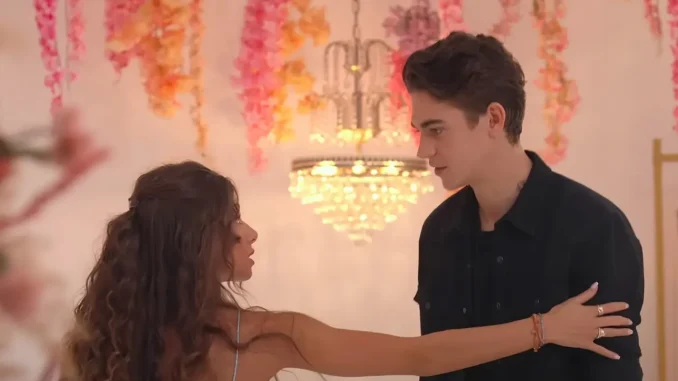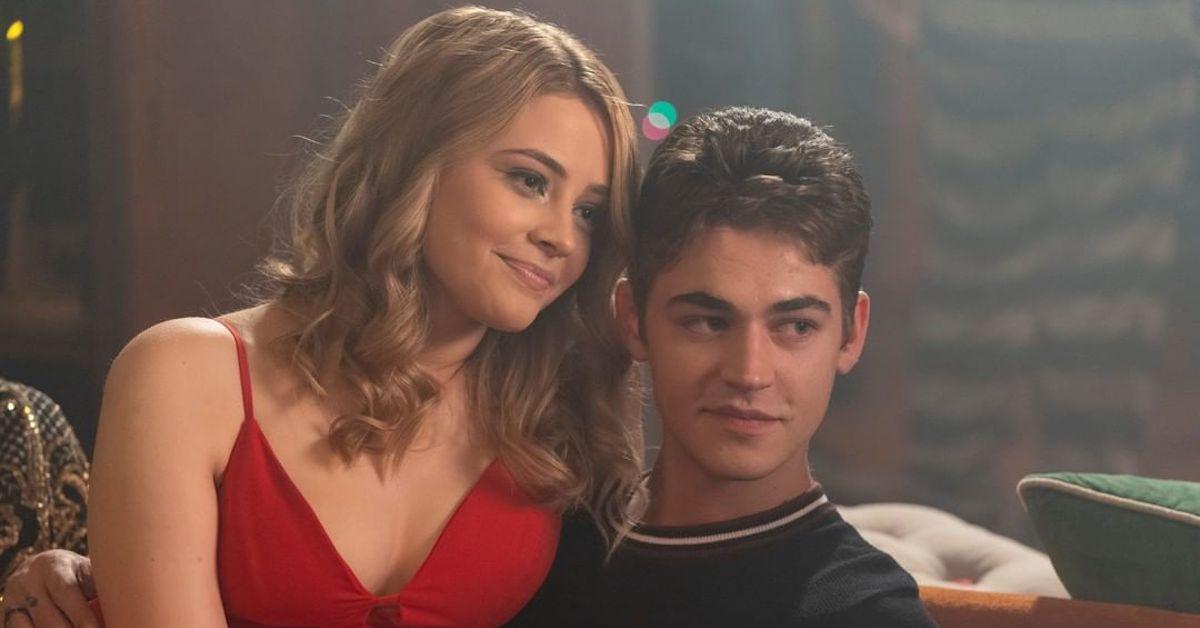
‘After Everything’ on Netflix, the Fifth Entry in the Toxic Romance Saga
After Everything (now streaming on Netflix) is the fifth film in the After series, a heartachey romance saga which makes 50 Shades of Grey look like In the Mood for Love. It marks the conclusion of the on-again/off-again rollercoaster love story between bad boy Hardin and good girl Tessa, although a prequel (titled, yes, Before) and a next-gen, new-characters sequel are reportedly in development, so despair not, ye diehard After fanpeoples, it’s not over until things cease to be profitable. Unlike the previous movies, After Everything isn’t a direct adaptation of an Anna Todd novel, going off the author’s reservation a bit (it culls from her prequel book Before, although the impending movie Before will also be based on the book Before, so there eventually will be some sorting out to do). But it stays absolutely true to the movie series in its inability to keep us awake with things like decent dialogue, hamstrung performances and a compelling story.

AFTER EVERYTHING: STREAM IT OR SKIP IT?
The Gist: Cake. Champagne. Rings. OMG WHO’S GETTING MARRIED. Well, we don’t know yet, but the shiny marble runway up the wedding aisle looks like a dangerously slick slip hazard, so here’s hoping the bride, whoever she may be, has chains on her tires. Then, a flashback, which is where we’ll spend most of the movie. Most of the movie without Tessa (Josephine Langford), I’m obligated to report. So you’ve been warned – this After is a Hero Fiennes Tiffin vehicle that leans heavily on the psychological state of his charisma-deficient character, Hardin, and, again, YOU’VE BEEN WARNED. You certainly recall what happened at the end of the previous movie, After Ever Happy, whose stupidass title is its most entertaining component (those of us yearning for the new movie to boast another word-jumble title will be disappointed to learn that it’s not dubbed After Purple Monkey Dishwasher).
I digress. After Ever Happy found Hardin publishing his book about relationship with Tessa, After, to great success. But he did so without telling her, and she was so P.O.’d, she dumped him for like the 233rd time. And it’s final! FINAL, I says. Time has passed, as time does. In a mumbling monotone voiceover, Hardin blithers shit like “Love never fails, but I failed us.” He’s in a deep dark funk. All he does is drink whisky and stare at a blank Google doc where his follow-up novel should be and yearn in his heart and loins and meager, meager brain for Tessa. He texts her and texts her and texts her again and she finally responds, “You need to move on. I did.” But so goeth the voiceover, “Without you, I have no after.” And as you damn well know, with no after to go on and on about, these movies will disintegrate into the void.
And so Hardin broods, often shirtless. His drinking is back out of control, his publisher wants him to cough up a draft or return the quarter-mil advance, his parents are on his ass. Then there’s mention of someone named Nathalie who now lives in Lisbon, so off goes Hardin to Portugal, so he can stalk her. But first, he has to mile-high it with the flight attendant while she’s still wearing her neckerchief – but it’s only a dream! Gotcha, horndogs! He finds Nathalie (Sex Education’s Mimi Keene) working in a bridal shop yet somehow able to afford a sailboat. She moved to Lisbon to start over after Hardin ruined her life by filming them having sex and then sharing the video with his buddies who posted it online – a tale as old as time itself. Yet for some reason, she welcomes Hardin with open arms, and it may have something to do with his being a tall, dark and handsome and sullen bad-boy movie character more than what the plot insists, namely, that he’s a different person now, and repentant and apologetic, and deep and interesting, and worth spending time with. In truth, he’s as crushingly boring as the machine that carved out the Chunnel. Will Nathalie be his new abusee? And will Tessa ever show up in this movie – in another terrible wig, we hope! – outside of gauzy flashbacks culled from footage from the previous movies? NO SPOILERS, but she kinda has to, doesn’t she?
What Movies Will It Remind You Of?: If only this was as laughably terrible as a 50 Shades movie. If only. The After series is on par with the Spanish Through My Window movies, which all owe their existence to 50 Shades, and therefore belong in the hall of fame for godawful young-adult romance movies populated by rutting twits.
Performance Worth Watching: Keene’s performance is relatively upbeat and thoughtful, I guess. She holds her own against the whirlwind gale of this lifeless screenplay, which gives her little more than thoughts and prayers for her interpretation of a hopeless, nonsense character.
Memorable Dialogue: A prime example of the arglebargle that emerges from peoples’ mouths in this movie: “You can’t just talk about us like that. About our souls.”
Our Take: I will say this for After Everything (not to be confused with the 2018 After Everything, a com-dram starring The Bear hunk Jeremy Allen White and Maika Monroe): Joshua Reis’ cinematography nicely captures picturesque Lisbon in all its beauty, and those postcard shots could have been so much better if it didn’t have any of these people in them. Especially this Rindon character. Rindon? Hindon? Hapton? Hardin? Hardin. Hardin is an emptiness. And he’s frequently shirtless, which makes sense, since emptinesses so rarely need clothing. He broods and sulks and drinks and yearns for the woman who’s barely in this movie, and possibly harbors a secret neckerchief fetish. And when he isn’t doing that, he pesters the woman he terrorized – and who inexplicably and against all known logic re-befriends him despite his being directly responsible for her losing her scholarship and forcing her into exile in another country, but hey, she read his bestseller and it made her cry. Score one for forgiveness, I guess.
Often, people decry movies in which “nothing happens,” when that perceived “nothing” is actually an emphasis on psychological character development over plot. And so “nothing” happens in After Everything, which, like its predecessors, tends to stretch 20 minutes of story into a 90-odd-minute meander. Problem is, this series’ approach to psychological character development is turgid, shallow and unengaging, and putting the bulk of a film on Tiffin’s shoulders is a grave error, a five-minute recipe for naptime. He’s charmless and one-dimensional in this role, and maybe it’s his fault and maybe it’s the screenplay’s fault and maybe it’s the world’s fault for so openly accepting ancient toxic-fantasy tropes about how sexworthy tattooed and scowling bad-boy types are, especially when they’re punching each other in the face or stalking the women who dumped them after being abused and are therefore the objects of their gross obsessions.
So is this shit reflective of greater societal problems, or what? Yeah, I guess, if you realize that the After movies and their ilk frequently lean into the stereotype that women can be objectified as muses for tortured male artists, or the implication that broken men can be fixed not via therapy or other practical medical means, but rather, by their abusees’ accepting their apologies and actively nurturing their change of character. Am I overanalyzing things? Maybe, because the intention here is surely romantic escapism. But the movie is such a hollow experience, such a sloppily executed foray into screenwriting, one can’t help but let one’s brain wander into the thicket of its unintentional consequences. And the truth is, if After Everything is supposed to be Herpderp’s redemption story, it fails miserably.